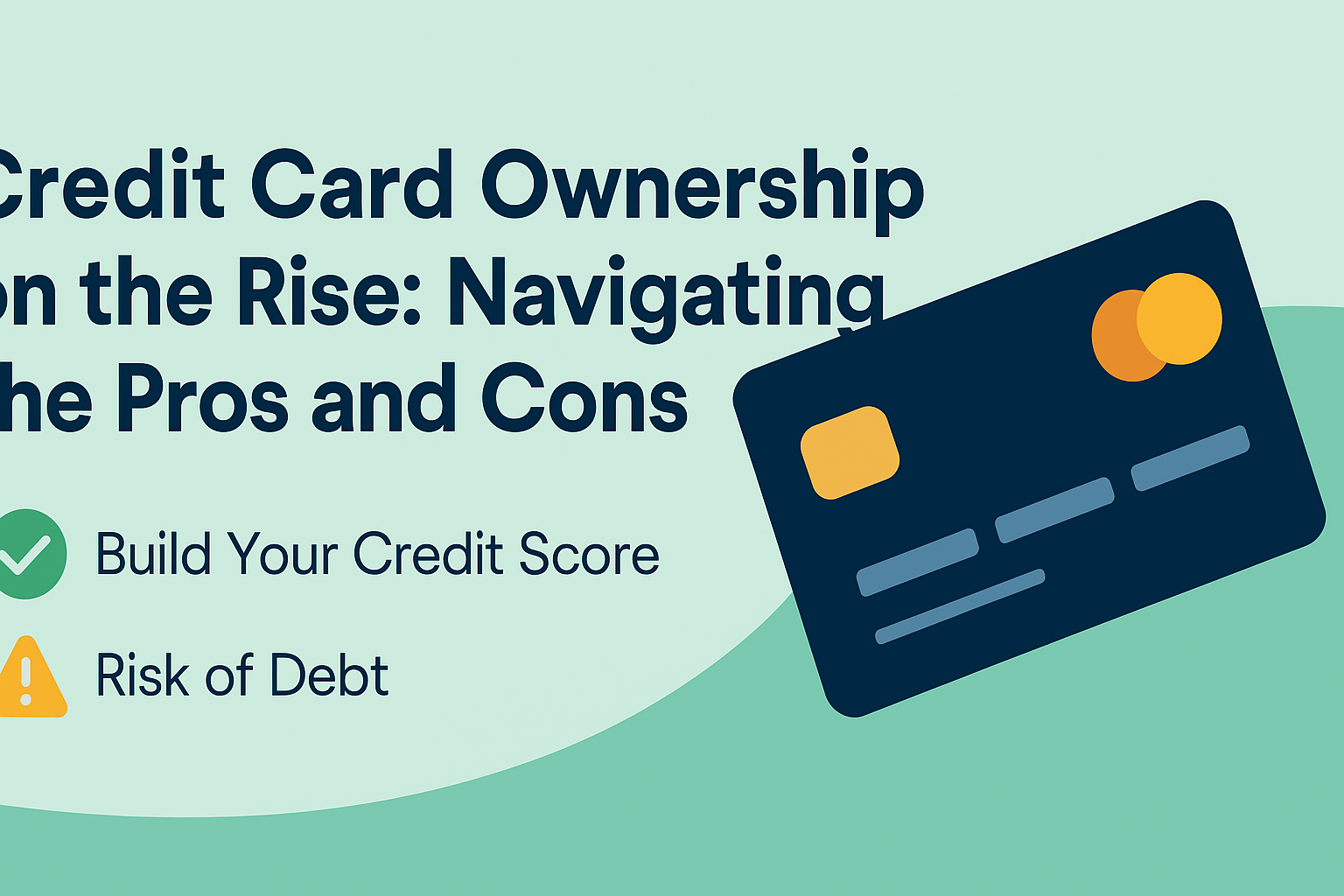New research has revealed an 8% increase in the number of UK consumers holding credit cards over the past year. As financial habits shift and more people look to credit for flexibility and support, understanding the advantages—and potential pitfalls—of credit card ownership has never been more important.
In this blog, we’ll explore why credit card ownership is on the rise, what it means for your financial wellbeing, and how you can use credit responsibly to build and protect your credit score.
What's Included?
Why Are More People Turning to Credit Cards?
Several factors are contributing to the uptick in credit card ownership:
- Cost of Living Pressures: With inflation still affecting everyday expenses, many are using credit cards to bridge short-term financial gaps.
- Greater Choice: Banks and fintech providers are offering a wider range of credit products, making credit cards more accessible across different credit profiles.
- Building a Credit Profile: More consumers are recognising the importance of having a good credit history for future borrowing, like mortgages or car finance.
- Reward Schemes: Cashback, air miles, and other incentives are making credit cards more attractive than ever.
While credit cards can offer flexibility and rewards, it’s essential to use them wisely to avoid falling into debt.
The Pros of Owning a Credit Card
✅ Build Your Credit Score: Responsible use of a credit card—paying on time and staying within your limit—can strengthen your credit score over time. This can open doors to better rates on loans, mortgages, and other credit products.
✅ Financial Flexibility: Credit cards can provide a financial cushion for unexpected expenses, helping to spread costs over time.
✅ Rewards and Benefits: Many credit cards now offer rewards such as cashback on purchases, travel perks, or discounts with selected retailers.
✅ Consumer Protection: Purchases over £100 and up to £30,000 are protected under Section 75 of the Consumer Credit Act. This offers peace of mind when buying big-ticket items.
The Cons to Watch Out For
⚠️ High Interest Rates: If you don’t pay off your balance in full each month, you could face steep interest charges, making purchases far more expensive in the long run.
⚠️ Debt Risk: It’s easy to overspend with a credit card, leading to balances that can become difficult to repay.
⚠️ Impact on Credit Score: Missing payments or carrying high balances relative to your credit limit can damage your credit score.
⚠️ Fees: Some credit cards come with hidden fees, including annual fees, late payment charges, or foreign transaction fees.
Top Tips for Managing Your Credit Card Responsibly
- Pay More Than the Minimum: Always aim to pay more than the minimum repayment to clear your debt faster and pay less in interest.
- Stay Within Your Limit: Try to use less than 30% of your credit limit to keep your credit utilisation ratio healthy.
- Set Up Direct Debits: Avoid missed payments by setting up a direct debit to pay at least the minimum amount each month.
- Review Your Statements: Regularly check your transactions to spot any unusual activity and stay on top of your spending.
Final Thoughts
As credit card ownership continues to rise across the UK, it’s clear that more people are seeing the value that flexible borrowing can offer. However, credit is a powerful financial tool that must be used carefully. Done right, a credit card can help you build a strong credit score and provide valuable perks. Done wrong, it can quickly lead to debt problems.
At Credit-Score.co.uk, we’re here to help you make informed financial decisions. Whether you’re applying for your first credit card or looking to improve your credit score, our resources and expert tips can support your journey.






